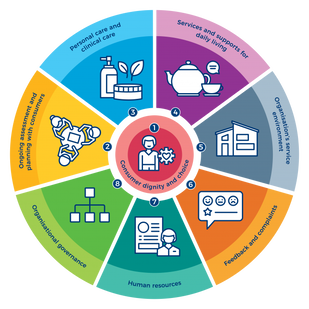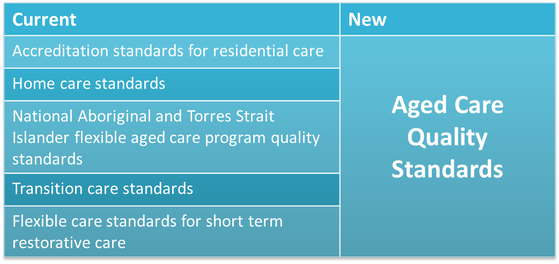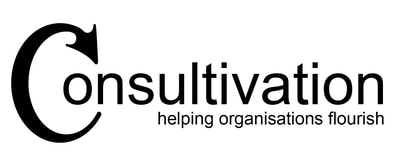|
The New Aged Care Quality Standards: Y2K all over again? By Jacqui Tibbits, Director Consultivation As the end of 1999 neared there was growing concern for computer formatting, storage and programmes. Risk managers, IT consultants, business executives and everyday people were gripped with Y2K or millennium bug issues. There were thoughts online calendars wouldn’t work, archives would be lost and computers would fail. I remember those days and the growing hysteria, the streaming of news articles and chatter and gossip through offices, shops and social gatherings. We held our breath as the new century dawned and the hype and hysteria of Y2K deflated like a balloon during a good party. As the 1 July 2019 nears and the new streamlined Aged Care Quality Standards take effect I find myself thinking back to 1999, the Y2K scare and their similarities. Both changes have lead in times, opportunities to identify difficulties, manage risk, and plan for possible consequences while dread and fear slowly creeps in and takes hold. Some of this anxiety is that providers are unsure of what happens on 1 July, how Quality Assessors will audit and the influence the Royal Commission into Aged Care will have. One thing we know for sure is that not every provider will have a Quality Assessor turn up on the first day to assess the organisation for compliance against the new standards. True, the new standards do not map neatly from the old home care standards and true, there are some bigger changes for residential care providers but for those organisations that focus on providing person-centred care and particularly those with embedded Wellness practices then I truly believe all will be o’kay just as our dates and computers were on the 1 January 2000. The new standards apply to all Commonwealth subsidised aged care services outlined in the Aged Care Act 1997. This includes residential care, home care and flexible care including short term restorative care. The new standards also apply to the Commonwealth Home Support Program and the National Aboriginal and Torres Strait Islander Flexible Aged Care Program. They replace the accreditation standards, the home care standards, the national Aboriginal and Torres Strait Islander flexible aged care program quality standards, transition care standards and flexible care standards for short term restorative care. For organisations providing services under multiple programs the new Standards will help to reduce bureaucracy, systems, processes, reporting and external auditing schedules thus reducing operating costs and enabling greater focus on service delivery. The new standards, for the first time, include a consumer’s outcome, an organisational statement and requirements to comply with the standards (download a copy below). There is certainly more focus on consumer thoughts, feelings and experiences regarding the care and services they receive. This is the reason why I believe those organisations that provide person-centred services well and have the systems and practices to evidence this will find compliance easier than those organisations that do not.
Similarly to past standards and ways of assessment the Quality Assessors will be proportionate in how the quality standards are applied to different types of services and different size and complexity of organisations. It is understood strategies used to achieve the standards will vary in intricacy, scope and scale based on the type and size of the organisation, its consumer profile and the risk to safety, health and wellbeing of clients. In response to this there is a range of help available to ensure organisations are compliant. Bigger providers are seeking the assistance of the big companies; smaller providers’ smaller organisations and some individual consultants. Some organisation are managing the transition in-house and others are buying ‘off-the shelf’ policies and procedures. It will be important for organisations purchasing off-the shelf products that these are tailored to reflect their organisation’s services and supports and that the organisation can demonstrate the intent of the policy in practice. One way for all organisations to achieve compliance is by completing internal audits. The Aged Care Quality and Safety Commission have developed a comprehensive self-assessment template (download a copy below) to help with internal audits. The template also auto-generates a continuous improvement plan for providers. Using the self-assessment template and available guidance material I suggest completing it using a three format audit process to identify areas of compliance, gaps and continuous improvement opportunities. They key item to have in readiness for 1 July is a written plan for continuous improvement that explains how the organisation will meet their obligations in relation to the services and standards. Ensure this plan is current, has achievable targets and timelines and has begun to be implemented. It may be difficult for all providers to be ready 1 July for compliance amidst all the reforms and changes continuing to swirl but being able to demonstrate your organisation has started its journey and is committed to achieving compliance is essential. At Consultivation we understand change can be daunting for some, full of opportunities for others but challenging for most. We also acknowledge the ongoing reforms in aged care are exhausting and are causing fatigue and stress for many people. We would like you to know you are not alone. We are here to support you and your organisation on your journey. We can assist with change and project management, transitioning services and regulatory compliance, understanding person-centred care, the Wellness philosophy and consumer-driven markets. We are also skilled and experienced in building capacity of staff and volunteers. The 1 July will come and like the Y2K scare all will be o’kay for those organisations that are planning, implementing, reviewing and improving their systems, services and practices for compliance with the Aged Care Quality Standards. Like new years’ eve 1999 when the world didn’t collapse I think I will have a dance on the street and enjoy a special cocktail to mark the occasion. Resources Developed by the Aged Care Quality and Safety Commission:
Consultivation is an independent consultancy service driven by an ethical values base supporting businesses, people and communities to flourish. References:
Australian Government, Aged Care Quality Standards, 2019 Canberra Australian Government, Guidance and Resources for Providers to support the Aged Care Quality Standards, May 2019 Canberra Australian Government, Transitional Arrangements key changes fact sheet – Aged Care Quality Standards, 15 May 2019, Canberra
0 Comments
Your comment will be posted after it is approved.
Leave a Reply. |
Jacqui TibbitsJacqui is a positive change management specialist with a penchant for public speaking. Susan JohnsonSusan has expertise in cognitive behaviour therapy, narrative therapy & mindfulness. Guest bloggersGuest bloggers are invited to contribute to the Consultivation blog. If you have an idea, concept or perspective you would like to share please contact Jacqui at Consultivation.
"Consultivation delivers topics skilfully and clearly."
Workshop participant "I have a better understanding of what impacts the aged care changes are going to have on our clients and business." Michelle
"Consultivation delivers topics skillfully and clearly. The knowledge gained will give me guidance in doing my job and keeping up the goodwork." Mario
"Thanks to Consultivation I understand that changes are on-going in the organisation and sector to keep clients in their homes longer."
Nancy "Due to today's training I will be more open minded with staff and pull together and ask for help to improve when needed."
Carol Archives
June 2020
Categories
All
|
||||||||||||||||||||






 RSS Feed
RSS Feed
